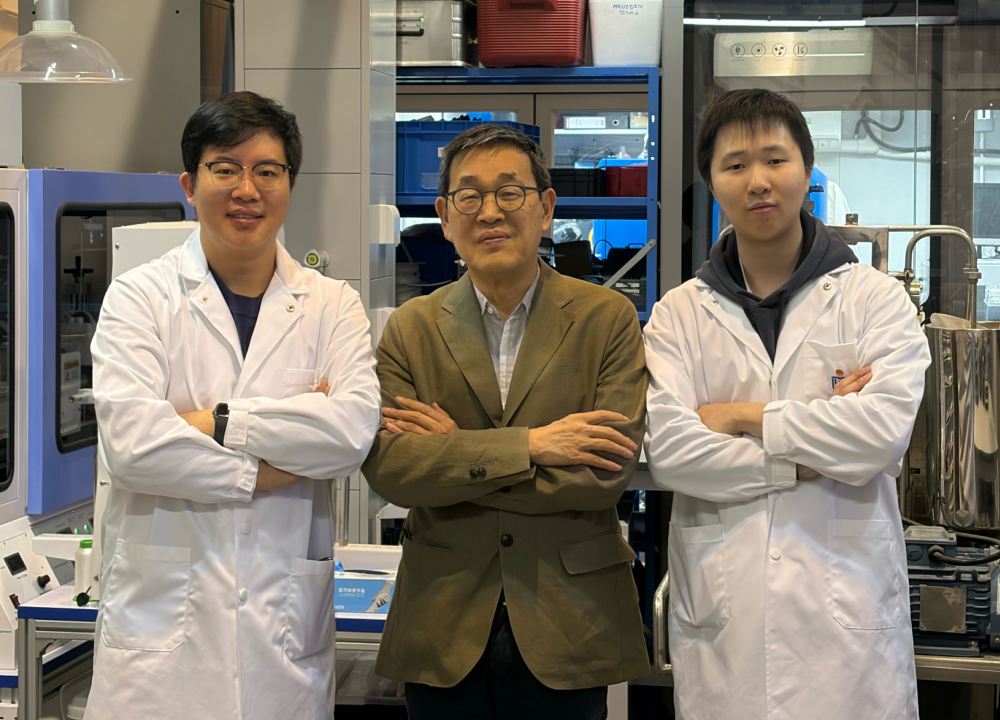News & Stories
2026

News
HKUST Pioneers Computational Models for Transregional Neural Activity to Re-establish Damaged Neural Connectivity, Offering New Hope to Patients
Researchers at The Hong Kong University of Science and Technology (HKUST) School of Engineering have achieved a major breakthrough in computational neural engineering. They have developed a novel reinforcement learning-based generative model to predict neural signals, creating an artificial information pathway that effectively bypasses damaged brain areas. This groundbreaking research opens up new possibilities for neural rehabilitation in patients suffering from motor or cognitive impairments caused by conditions such as stroke or spinal cord injury. Their study, titled “A generative spike prediction model using behavioral reinforcement for re-establishing neural functional connectivity”, has been published in the prestigious journal Nature Computational Science.

News
HKUST Develops Breakthrough High‑Efficiency, Low‑Cost Wastewater Treatment Technology
The Hong Kong University of Science and Technology (HKUST) research team has developed a groundbreaking wastewater treatment technology that integrates a mesh bioreactor with an ultrasound-induced transient cavitation cleaning mechanism. The system can complete mesh cleaning within 3.8 seconds under anaerobic conditions and achieves 10-20 times higher flux than conventional membrane bioreactors (MBRs). The technology operates efficiently with substantially lower energy consumption, produces treated effluent surpassing international and local discharge standards, and reduces the cost of treating each cubic metre of wastewater to 50% of conventional MBRs, offering a sustainable solution for both municipal and industrial wastewater treatment.

News
HKUST's AI Breakthrough Transforms Storm Forecasting Enabling Earlier Life-Saving Warnings
In a critical advance for climate resilience, researchers from The Hong Kong University of Science and Technology (HKUST) have developed an AI model that can predict dangerous convective storms—including Black Rainstorms, thunderstorms and extreme heavy rainfall like those that have hit Hong Kong—up to four hours before they strike. This world-first technology, developed in collaboration with national meteorological institutions and powered by satellite data and advanced deep diffusion technology, improves forecast accuracy by over 15% at the 48‑kilometer spatial scale compared with existing systems. This breakthrough strengthens the overall accuracy of the national weather forecasting system and promises to transform early warning systems for vulnerable communities across Asia.

News
HKUST Develops Pioneering Mechanically Interlocked Molecule-Based Materials to Advance Safe, High-Performance Lithium Metal Batteries
Researchers from the School of Engineering at The Hong Kong University of Science and Technology (HKUST) have pioneered a mechanical bond strategy to create quasi-solid-state electrolytes (QSSEs) for lithium-metal batteries (LMBs). This marks the first use of mechanically interlocked molecules (MIMs) in covalent organic frameworks (COFs) to achieve high-performance battery operation, harnessing the unique chemistry of interlocked systems to enable safe, stable, and high-energy-density LMBs.

News
HKUST Develops Novel "Molecular Velcro" to Boost Efficiency and Stability of Perovskite Solar Cells
Researchers from the School of Engineering at The Hong Kong University of Science and Technology (HKUST) have developed a robust coating layer that significantly enhances the durability of perovskite solar cells. In tests simulating intense midday sunlight at 85°C, these solar cells retained over 95% of their initial efficiency after more than 1,100 hours of continuous operation. This breakthrough demonstrates the real-world application of perovskite cells in outdoor environments, paving the way for durable, high-efficiency, and low-cost solar technology.

News
HKUST Develops World’s First Sub-Zero Celsius Elastocaloric Green Freezer, Reshaping Freezing Industry with its Zero Emissions
Researchers at the School of Engineering of The Hong Kong University of Science and Technology (HKUST) have developed the world’s first Sub-Zero Celsius elastocaloric freezing device, capable of reaching temperatures as low as -12℃. This represents a significant milestone in expanding green solid-state elastocaloric refrigeration technology into the global freezing industry, offering a promising solution to combat climate change and accelerate low-carbon transformation of the global freezing market. The findings have recently been published in the international journal Nature, under the title “Sub-zero Celsius Elastocaloric Cooling via Low-transition-temperature Alloys”.

News
HKUST Co-develops Robotic Nanoprobe for Precise Mitochondria Extraction Charting New Directions in Research on Therapies for Neurodegenerative Diseases and Cancer
Mitochondrial dysfunction is associated with various chronic diseases and cancers, including neurodegenerative diseases and metabolic syndrome. Gently extracting a single mitochondrion from within a living cell—without causing damage and without the guidance of fluorescent makers—has long been a challenge akin to threading a needle in a storm for scientists.

News
13 HKUST Research Projects Secure Top Funding from RGC Collaborative Research Fund and Research Impact Fund
The Hong Kong University of Science and Technology (HKUST) has demonstrated outstanding research leadership in the 2025/26 Collaborative Research Fund (CRF) and Research Impact Fund (RIF) under the University Grants Committee (UGC)'s Research Grants Council (RGC). The University secured funding for 13 projects under the CRF and RIF, with grants totaling more than HKD77 million. The achievement places HKUST first among all UGC-funded universities in both the number of funded projects and total funding received. This accomplishment highlights HKUST's strength in pioneering interdisciplinary and cross-institutional research, as well as its exceptional capacity for knowledge transfer in translating cutting-edge research outcomes into real-world impact that enhances societal well-being.








